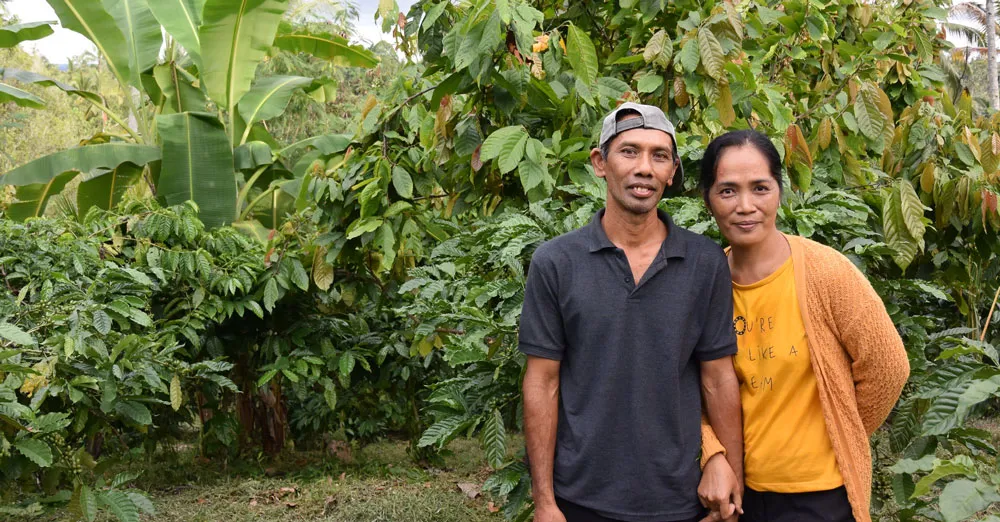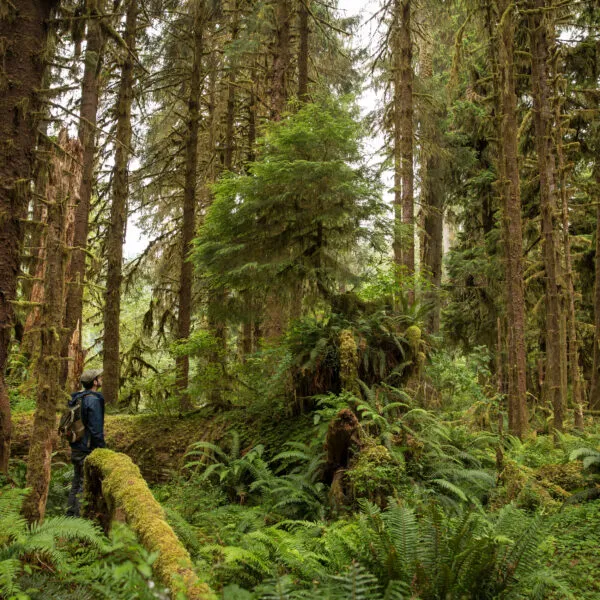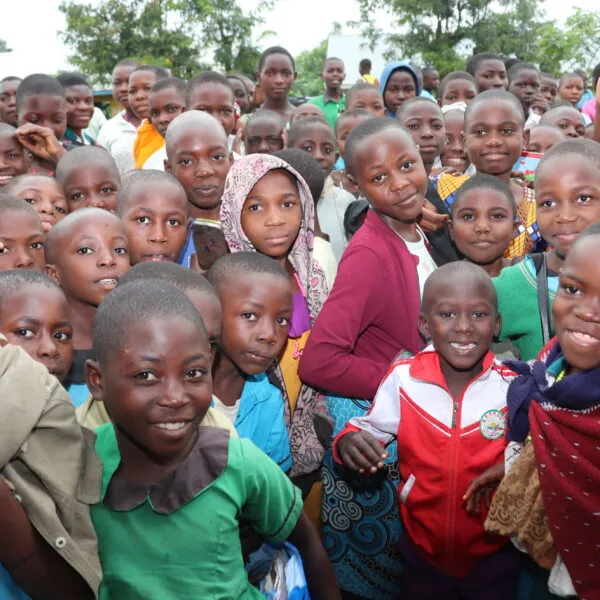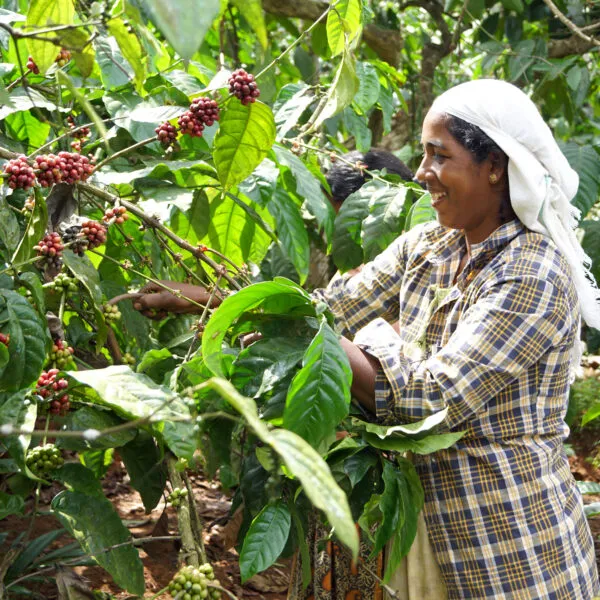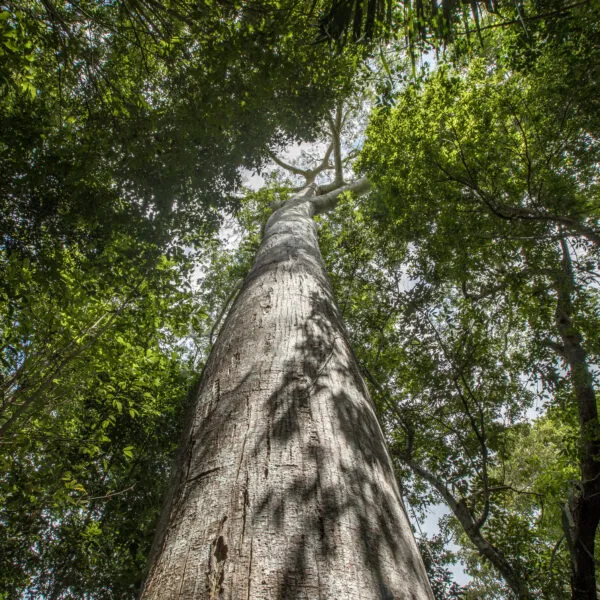Indonesia is the top cocoa producer in Asia (and sixth in the world as of 2018), with an annual output of around 240,000 tonnes. While market demand for cocoa is booming, both nationally and globally, Indonesian production has fallen into decline in recent years—threatening the livelihoods of millions of smallholder farmers across the country.
More than 95 percent of Indonesia’s cocoa is produced by smallholder farmers with 2 hectares of land or less. The vast majority of these farmers live in extreme hardship, scraping a living from aging trees, while grappling with the impacts of climate change and more frequent outbreaks of pests and diseases. As a result, both crop productivity and bean quality has dropped—making the Indonesian cocoa sector less competitive in the global market. In the face of these complex challenges, farmers increasingly struggle to see a future in cocoa.
But experience has taught us that with training in good agricultural practices and better post-harvest handling—and opening up access to financing and international market opportunities—Indonesia’s small-scale farmers can transform this struggling sector into a powerful engine of rural prosperity and sustainability.
Back in 2011, the Rainforest Alliance and local NGO Kalimajari launched a successful pilot program to help smallholders in Jembrana, Bali, improve their incomes through the production of high value fermented cocoa and better access to specialty markets. Within a few years, this pilot doubled the income of more than 600 smallholders and reduced rural unemployment rates.
The TRACTIONS project aims to scale up this success to seven other cocoa-growing areas across Indonesia. Here’s how we’re helping our partner communities spearhead this transformation.
Location
Indonesia
- Bali: Jembrana and Tabananan districts
- Sulawesi: North Luwu, Poso, and East Kolaka districts
- East Nusa Tenggara: Ende and Sikka districts
Period
2020-2025
Partner communities
Our field colleagues in Indonesia will work closely with seven independent farmer cooperatives spread across the island provinces of Bali, Sulawesi, and East Nusa Tenggara.
Project activities are expected to serve some 13,600 people, including 3,400 smallholders and their families.
Project objectives
Together with our local and international project partners, the Rainforest Alliance will implement a wide range of activities to improve the quality and productivity of the Indonesian cocoa sector—and improve the livelihoods and wellbeing of rural farming communities across the country.
- Climate-smart agriculture training
Local smallholders will undergo in climate-smart agricultural practices to help them adapt to and prepare for the impacts of climate change. These techniques nourish and protect vital natural resources (such as soil, water, and forests), which in turn can help improve their productivity, yield quality, and their incomes. - Cocoa demonstration plots
Trainers will show farmers how to implement more sustainable growing practices (such as composting, pruning, frequent harvesting, appropriate fertilizer use and sanitation) on community demonstration plots. - Community-led nurseries
Community-led nurseries will be established so local farmers can cultivate healthy cocoa seedlings, fruit trees, and young shade trees. - Cocoa Cooperative Processing Units (CCPUs)
CCPUs will be established in each of our partner cooperatives and farmers will undergo training in cocoa fermentation best practices. The fermentation process (where cocoa pods are split open to expose their pulp to yeast) strongly influences the quality and flavor of the cocoa beans—allowing farmers to sell them on to high quality buyers and traders at a better price. - Financial literacy training and social inclusion
Our partner communities will receive training support in farm management, business skills, and financial literacy. This, in turn, will help integrate more smallholders—especially women and young farmers—into the international cocoa value chain. - New commercial partnerships
Local smallholder groups and cooperatives will be strengthened and connected with government officials, financial institutions, and international cocoa buyers and traders—leading to new and more profitable partnerships with specialty markets.
Desired impacts
The over-arching goal of this project is to help small-scale cocoa farmers increase yields and improve their income opportunities through the production of high-quality cocoa. To that end, the TRACTIONS project will work to achieve the following outcomes by 2025:
- Higher yields and better-quality cocoa
At least 3,400 farmers (40 percent women and youth) will not only enjoy lower operation costs, but also higher crop productivity and bean quality. - Better incomes and new community-based enterprises
Each of our seven partner cooperatives will have its own CCPU—allowing for a combined output of at least 210,000 kg of high value fermented cocoa beans per annum. 700 women farmers and 350 young farmers will be supported to create thriving community-based enterprises selling cocoa products as well as diverse horticulture and agroforestry products, such as fruits and flowers. - Access to global markets
All seven partner cooperatives will be connected to high value specialty markets—with each one securing at least one long-term sales contract for fermented cocoa beans with a leading international buyer. This success will motivate more smallholders to embrace higher quality cocoa production—helping to improve rural livelihoods across Indonesia. - UN Sustainable Development Goals
Collectively, these outcomes will contribute to several of the United Nations’ Sustainable Development Goals (SGDs), including:- SDG 1: No Poverty
- SDG 2: Zero Hunger
- SDG 5: Gender Equality
- SDG 8: Decent Work and Economic Growth
- SDG 13: Climate Action
- SDG 15: Life on Land
- SDG 17: Partnership for the Goals
Funders
The Netherlands Ministry of Foreign Affairs, in collaboration with the Netherlands Enterprise Agency (RVO) through the SDG Partnership (SDGP) Facility
Implementing partners
- Kalimajari
- Rikolto
- Valrhona
- District governments
- Seven farmer cooperatives in Sulawesi, Bali, and East Nusa Tenggara:
- Koperasi Kerta Semaya Samaniya, Jembrana
- Koperasi Buana Mekar, Tabanan
- KSU-Karya Bersama, Poso
- Koperasi Gabungan Kelompok Tani, Kolaka Timur
- Koperasi Multi Jasa Tani (Simultan), Luwu Utara
- KSU-Romeo, Sikka
- Koperasi SIKAP (Kopan Sikap), Ende
Rainforest Alliance contact
Hasrun Hafid, cocoa team manager
hhafid@ra.org
